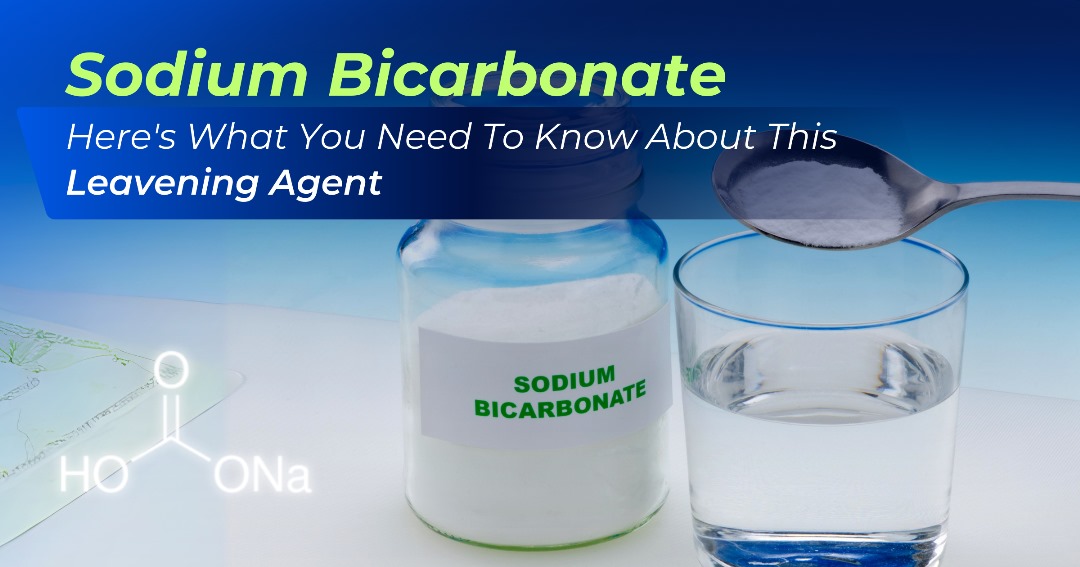
As Nigeria grows as an industrial giant, the demand for industrial lubricants increases. Industrial lubricants do more than just reduce friction, they play an important role in the energy conservation, emission reduction, and temperature regulation thereby making them crucial in today’s eco-conscious industrial landscape.
The history of industrial lubricants is as old as the Industrial Revolution itself, when simple oils and fats were used to reduce machinery friction. In Nigeria, the history of industrial lubricants is closely tied to the country’s economic development, and sectoral expansion especially in oil & gas, manufacturing, and construction, the demand for high-quality lubricants grew exponentially.
As technology advanced, lubricants became more advanced, as synthetic options emerged in the 20th century. These lubricants offered better durability, efficiency and performance, seamlessly transforming industrial processes. Today, they have become indispensable across multiple sectors, keeping machineries and sectors running smoothly, thus sustaining the supply chain.
This article provides a broader view of market trends and future opportunities, with expert analysis from Deloitte to provide an in-depth analysis of Nigeria’s industrial lubricants landscape.
Components of Industrial Lubricant
Industrial lubricants are sophisticated blends of base oil and various additives, each serving a specific purpose. Base oil, whether mineral, synthetic, or a blend of both, provides the fundamental lubricating properties. On the other hand, additives enhance these properties and may offer additional benefits like corrosion resistance, anti-wear, and temperature stability.
Minerials derived from crude oil, are less expensive, but may lack the performance of synthetic oils. Synthetic oils, chemically engineered to offer superior performance, temperature resistance, and longevity, as highlighted by ExxonMobil. Semi-Synthetic oils provide a blend of minerals and synthetic oils.
Additives further enhance lubricants by offering specific benefits:
- Anti-Wear Agents: Reduce machinery wear.
- Corrosion Inhibitors: Protect against rust and corrosion.
- Viscosity Modifiers: Help maintain optimal viscosity across temperature changes, as explained in Chevron’s guide on viscosity index improvers.
- Detergents and Dispersants: Prevent contamination and keep machinery clean.
Understanding these components is essential for choosing the right lubricant, tailored to specific conditions like high temperatures or extreme pressure. For more on additives, Lubrizol’s article offers valuable insights into their roles in industrial lubricants
Understanding the components of industrial lubricants is crucial for selecting the right product for specific applications. Whether it’s a high-temperature environment or a setting that requires extreme pressure resistance, knowing what goes into your lubricant can make all the difference in performance and longevity.
Applications and Uses of Industrial Lubricants
Industrial lubricants are essential across various sectors, each with unique requirements and challenges. Here’s a look at some of the key industries where industrial lubricants play a pivotal role
Oil & Gas: Lubricants are essential for drilling equipment, compressors, and hydraulic systems, ensuring smooth operation in extreme conditions like high pressure and corrosive environments. Shell highlights specialized lubricants for this sector.
Manufacturing: From automotive assembly lines to textile mills, lubricants reduce friction, minimize wear, and extend machinery lifespan. Machinery Lubrication explains their crucial role in keeping manufacturing operations efficient.
Textile Industry: Spinning, weaving, and dyeing machines all require non-staining and easily washable lubricants. Textile World’s article discusses the role of lubricants in textile machinery.
Aerospace: The industry requires lubricants that perform under high altitudes and varying temperatures. Aerospace Manufacturing and Design provides insights into these applications.
Construction: Heavy machinery like bulldozers, cranes, and excavators rely on high-performance lubricants to operate that withstand extreme pressures and temperatures.
Food Processing: In food processing plants, lubricants reduce friction and meet strict safety and hygiene standards. FUCHS’s article on food-grade lubricants provides valuable information on this.
Marine: Ships and offshore rigs use lubricants to withstand corrosive saltwater and high pressure. Castrol’s marine lubricants guide offers insights into this sector’s requirements.
Power Generation: Lubricants in power plants must handle high thermal stability and resist oxidation in turbines and generators.
Understanding the applications and uses of industrial lubricants can help businesses make informed decisions, ensuring optimal performance and reduced operational costs.
Supply Chain and Distribution of Industrial Lubricants
The journey of an industrial lubricant from its production facility to its end use involves multiple processes.
Firstly, manufacturers blend base oil and additives to create a variant of lubricants, which are then distributed through a network of wholesalers and retailers, or direct sale to large industries.
By the same token, access is available to smaller consumers through specialized retail outlets and online platforms. End-users, from workshops to large plants, require diverse products to meet specific needs, making comprehensive distribution essential.

Types of Industrial Lubricants
Mineral Oil-Based Lubricants
- Hydraulic Oils: These are the workhorses of the industrial world, used in hydraulic systems to transmit power. They are known for their excellent anti-wear properties. Machinery Lubrication’s article offers an in-depth look at hydraulic oils.
- Gear Oils: Specifically designed for gearboxes, these lubricants can handle extreme pressure and resist thermal degradation.
- Compressor Oils: These lubricants are formulated to handle industrial compressors’ high temperatures and pressures.
Synthetic Lubricants
- Polyalphaolefins (PAOs): These are used in extreme temperatures and offer excellent thermal stability.
- Esters: Known for their biodegradability, esters are often used in environmentally sensitive applications.
- Silicones: These are use in specialize applications like vacuum pumps and offer excellent resistance to oxidation.
Greases
- Lithium-Based Greases: They are the most commonly used greases and perform well in various applications.
- Calcium-Based Greases: These are water-resistant and are often used in marine and food-processing applications.
- Polyurea Greases: Known for their long life and excellent high-temperature performance, these are often used in electric motor bearings.
Specialized Lubricants
- Food-Grade Lubricants: These are specially formulated to be safe for incidental food contact and are used in the food and beverage industry.
- High-Temperature Lubricants: These are designed to maintain their properties at extreme temperatures and are often used in furnaces and kilns.
- Biodegradable Lubricants are gaining popularity due to their low environmental impact and are often used in agricultural and marine applications.
By understanding the different types of industrial lubricants, their applications, and their advantages and disadvantages, companies can make more informed decisions when selecting the proper oil for their specific needs.
UNDERSTANDING THE INDUSTRIAL LUBRICANT INDUSTRY IN NIGERIA
The industrial lubricants market in Nigeria has been experiencing steady growth over the past few years, with the market valued at approximately $200 million, with an annual growth rate of 5%.
With an estimated volume of 100,000 metric tons of industrial lubricants annually, demand is highest in industrial hubs like Lagos, Ogun, Rivers, accounting for nearly 60% of market demand.
Grand View Research’s report and Statista’s data provide a global view, which can be useful for understanding how Nigeria fits into the broader landscape.
Furthermore, as Nigeria continues its industrialization efforts, the market is projected to reach a $250 million valuation by 2025. Key factors influencing this growth include government support and challenges like fluctuating oil prices and import restrictions.
Challenges in Nigeria’s Industrial Lubricant Market
The Nigerian industrial lubricants market faces several challenges. Counterfeit products compromise machinery and safety, despite efforts by the Standards Organization of Nigeria to address the issue.
Supply chain inefficiencies, especially in remote areas, affect timely availability of products. Also, regulatory hurdles like import restrictions and tariff changes further increase costs, passed on to the consumers. Market fragmentation, with numerous local and international brands, complicates consumer decisions.
Additionally, technological gaps in blending and testing facilities require the import of specialized lubricants. Data from the National Bureau of Statistics provide insights into these technology gaps.
Businesses can make more informed decisions by understanding the nuances of market size in terms of revenue, volume, regional demand, and future projections.
Competitive Landscape: Tapping into the opportunity
In Nigeria’s industrial lubricants market, local brands hold about 40% of the share, while international brands dominate with 60%. The latter benefit from global recognition and a broader product range, often perceived as higher quality. However, local brands are improving by investing in R&D and quality control, with competitive pricing that appeals to small and medium-sized enterprises (SMEs).
Market entry barriers include navigating complex regulations, such as environmental standards and import duties, where non-compliance can lead to fines and reputational damage. Establishing a robust distribution network is essential for new entrants, often requiring partnerships with local distributors.
Pricing strategies are key for market penetration, with competitive pricing and bulk discounts attracting industrial clients. Long-term supply contracts with fixed pricing can ensure steady revenue and foster customer loyalty.
Additionally, companies that focus on product innovation, such as eco-friendly lubricants, and offer value-added services like technical support, can gain a competitive edge in this evolving market. Euromonitor’s market research provides insights into brand shares and strategies in Nigeria’s lubricants sector.
Understanding the correct type of lubricant is a technical requirement and a strategic imperative for businesses aiming for long-term success. You can get more valuable insight into the importance of oil condition monitoring in industrial settings.
Where to Buy Industrial Lubricants in Nigeria
Nigeria’s avenues for purchasing industrial lubricants are as diverse as the industries that use them. Many international and local brands have authorized distributors and wholesalers who supply industrial lubricants in bulk. These are often the go-to sources for large industrial operations.
Some companies prefer to buy directly from manufacturers, especially when they require specialized or custom-formulated lubricants, often involving long-term contracts and bulk purchases. Specialized retail outlets offer a range of products in smaller quantities to meet various industrial needs. These stores often have experts to guide buyers in making the right choice.
However, the digital age has made it easier than ever to purchase industrial lubricants. Websites and apps offer the convenience of browsing products, comparing prices, and even scheduling deliveries, all from the comfort of your office or home. Matta is Africa’s leading B2B marketplace for chemicals and raw materials.
Regarding lubricants, the quality of products used can significantly impact the efficiency and sustainability of industrial operations. Poor-quality lubricants can lead to increased wear and tear, higher energy consumption, and even catastrophic equipment failure.
Rounding up
In summary, the landscape of industrial gases in Nigeria is complex and promising, offering many opportunities for businesses, researchers, and policymakers alike.
As the nation continues to industrialize, the demand for these essential gases—ranging from oxygen and nitrogen to more specialized gases like argon and helium—is poised to grow exponentially.
Understanding the intricacies of sourcing, safety protocols, and applications is crucial for anyone involved in this sector. This guide aims to serve as a comprehensive resource, shedding light on Nigeria’s multifaceted world of industrial gases.
Whether you’re a seasoned industry veteran or a newcomer eager to learn, we hope this guide has equipped you with the knowledge and insights to navigate this dynamic field successfully.
Thank you for reading
FAQs
What are the most commonly used industrial lubricants in Nigeria?
Nigeria’s most commonly used industrial lubricants are hydraulic, gear, and compressor oils. These are primarily mineral oil-based lubricants due to their cost-effectiveness.
Are synthetic lubricants better than mineral oil-based lubricants?
Synthetic lubricants generally offer better thermal stability and longer service life but are more expensive. The choice between synthetic and mineral oil-based lubricants depends on the specific application and budget constraints.
What are the environmental regulations for using industrial lubricants in Nigeria?
Environmental regulations are becoming stricter, focusing on reducing emissions and encouraging the use of eco-friendly products. Companies must adhere to local and international standards to avoid penalties.
How can I verify the quality of an industrial lubricant?
Quality can be verified through laboratory tests and by checking for certifications from relevant authorities. Always buy from reputable suppliers to ensure product quality.
Is it cost-effective to use high-end lubricants for all types of machinery?
Not necessarily. The cost-effectiveness of using high-end lubricants depends on the criticality of the machinery and the potential cost of downtime due to lubricant failure.
How do I dispose of used industrial lubricants?
Used lubricants must be disposed of per environmental regulations. Many companies offer recycling services for used industrial lubricants.




